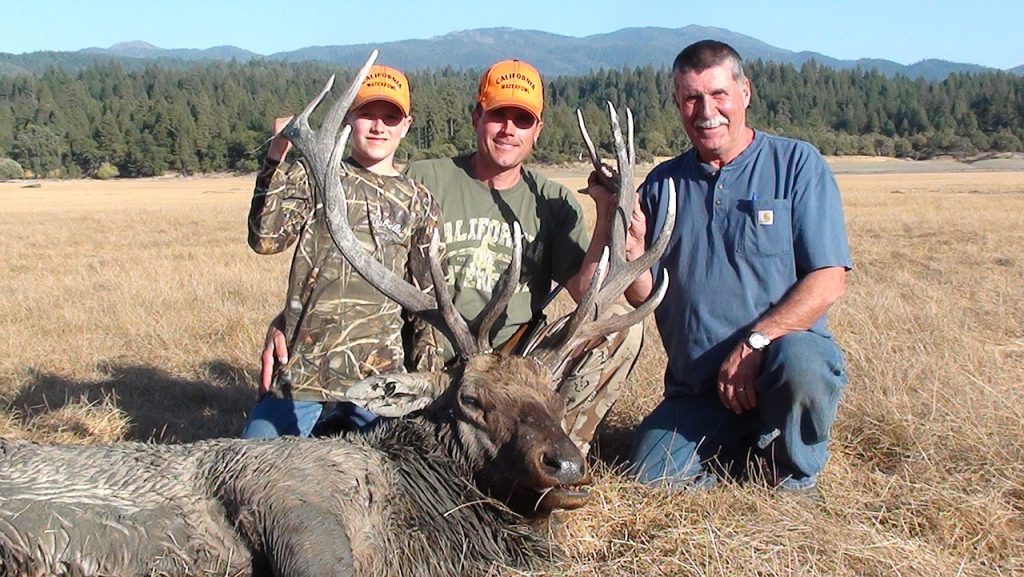
Please follow us on Telegram, Rumble, Minds, Gettr, Twitter, Gab
Hunting may be losing popularity nationally, but in the West the number of hunters is climbing.
According to the U.S. Fish and Wildlife Service, in 2022 there were 10% fewer hunters across the country than there were when hunting peaked in the 1980s. At the same time, four Western states — Colorado, Montana, Idaho and Utah — saw more hunters than ever before.
A key driver of this trend is out-of-state hunters who have run out of luck in their home states: elk, deer and other big game species have declined precipitously in many parts of the nation.
“Opportunities to hunt elk are very limited where I live,” said Wisconsin resident Erik Rollefson. “My home state only has a few hundred elk and issues fewer than 10 elk hunting permits per year. I have a better chance to get a license in any Western state.”
Out West, big game hunting licenses are distributed in state-run lotteries. While most are reserved for local residents, some can be allotted to non-resident hunters. Hunter numbers are down 8% in New Mexico, but the state still reserves 16% of its licenses for non-residents.
Contrast that with Colorado, where as many as 35% of the licenses go to out-of-state hunters. Colorado also sells unlimited “over-the-counter” licenses that do not require a lottery entry to purchase. Policies like this have contributed to a whopping 26% more hunters in the state than there were in 2008.
It’s not surprising that many local hunters resent losing hunting opportunities to visitors. “Many residents depend on hunting for food,” said Rebecca Bradley, a bow hunter from Colorado. “I’d prefer that the state reserve licenses for locals that want them before setting any aside for non-residents.”
Consider Montana, where hunter numbers are up almost 4%. Big Sky Country sold slightly fewer hunting licenses to residents from 2008 to 2021, but non-residents bought 35% more licenses over that same period. With more out-of-state hunters pressuring game, some residents tell me they’d rather stay home.
“The non-resident (hunter) numbers have gone up like crazy,” said Joe Perry, a Montana rancher and founding member of the Montana Sportsmen Alliance. “That excludes residents.”
Though hunting tourism may discourage some locals from hunting, It’s a windfall for state wildlife agencies while subsidizing license prices for residents.
Except for Utah, which reserves just 10% of its tags for non-residents, Western states such as Colorado, Montana, Idaho, New Mexico, and Wyoming receive more than 60% of their license revenue from non-resident hunters.
That’s because non-residents pay so much more to hunt than residents do. The Wyoming Legislature recently passed a bill to increase certain kinds of non-resident elk licenses from $576 to $1,258, while a resident pays just $57.
Increasing costs for hunting licenses and what many say is crowding in the outback may finally reduce the ranks of out-of-state hunters. “It’s a big expense, and you don’t get to experience the wilderness if the mountains are overrun with hunters,” said Rollefson, the hunter from Wisconsin. “I’d rather go less often but have a higher-quality hunt, with fewer hunters and more animals.”
Joe Livingston, a public information officer for Colorado Parks and Wildlife, said the agency’s approach is that “the animals take priority,” although “crowding has become a factor.”
The agency is considering reducing the non-resident license allocation from 35% to 25%, a change expected to cost the state $1.4 million.
I live in Colorado, but I no longer hunt locally. I support allocating fewer hunting licenses for visitors so that locals don’t feel locked out. I believe resident hunters and a local hunting culture that’s invested in public land and its wildlife deserve to take priority over hunting tourism. Those of us who live in the state are the ones who pay taxes, vote and volunteer to clean up trails in the mountains.
If locals lose interest in hunting because wild places have become crowded, and animal populations drop because deer and elk are over-pressured, the next generation of hunters will be seasonal tourists rather than year-round stewards of their local area.
We need to preserve the wildness we’ve got left in Colorado along with the wild animals that depend on it. To do that, local hunters need to come first when it comes to issuing licenses to hunt.
Contributed by Andrew Carpenter at Writers on the Range, writersontherange.org, an independent nonprofit dedicated to spurring lively conversation about the West. He lives in Colorado.

I know in Utah they are not good at managing the Herds.
I won't even waste my time as a Resident applying for Permits!
Been Decades of poor Management!